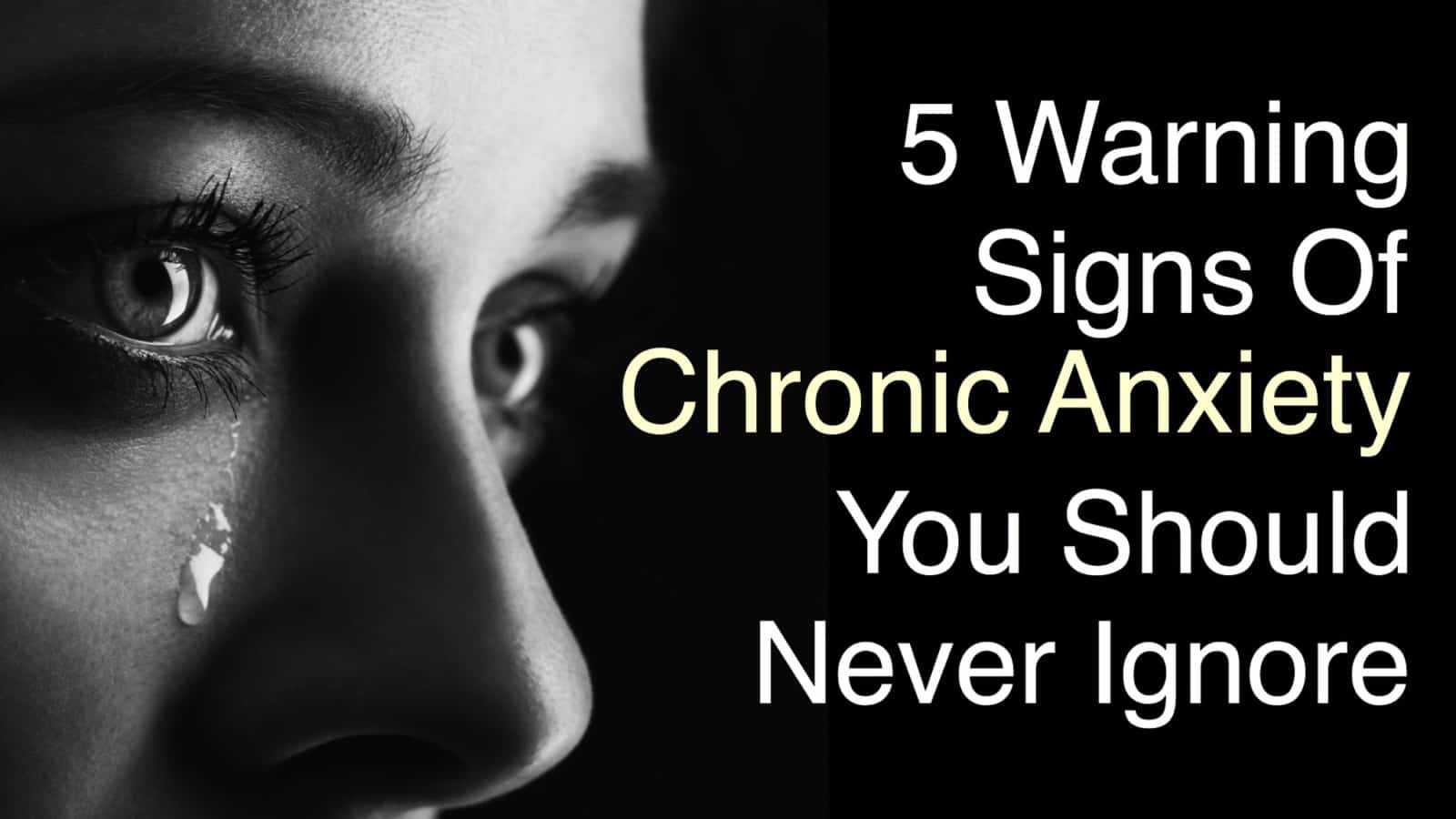“Anxiety disorders are a category of mental disorders characterized by feelings of anxiety and fear, where anxiety is a worry about future events and fear is a reaction to current events.” – Diagnostic and Statistical Manual of Mental Disorders
Anxiety can easily take over your whole life if you don’t know how to effectively handle it.
Unfortunately, it affects approximately 18% of our population, and this figure only accounts for those who have actually reported their anxiety.
Anxiety feels like a neverending black hole. You might think you’ve been sucked in and can’t begin to search for the way out. You want to escape, but you don’t know where to start.
If this sounds like you, then you probably have some sort of anxiety.
However, you shouldn’t feel too discouraged, as we will suggest a few ways to combat anxiety before it gets too unbearable.
Of course, knowing the signs of anxiety is the first step to conquering it in the first place, so read on to find out more about the signals to look out for.
HERE ARE 5 WARNING SIGNS OF CHRONIC ANXIETY YOU SHOULD NEVER IGNORE
1. FATIGUE
The stress created from anxiety weakens the entire immune system, resulting in fatigue and lethargy. If you feel tired even after getting a full night’s rest, and this feeling occurs quite often, you might be seeing the early signs of chronic anxiety.
2. CRAVING SUGARY OR STARCHY FOODS
Many times when we feel stressed, we reach for a source of quick calories, usually in the form of sugary or fattening foods, in order to overcome this feeling. For someone with chronic anxiety, food often serves as a source of comfort during intense episodes or attacks.
If you find yourself reaching for sugary or starchy foods often, you may be developing a form of this disorder.
3. DIGESTIVE PROBLEMS
Anxiety can easily wreak havoc on the digestive system. This is because our gut is linked to our brain directly through something called the vagus nerve. This nerve sends signals to our brain based on the types of bacteria located in our gut. So, the better we eat, the better mental health we will have.
Related article: How our gut health determines our mental health
For someone with anxiety, their gut bacteria might not serve their mental health properly. This imbalance sometimes leads to feelings of distress and worry. Development of irritable bowel syndrome or other types of stomach issues can often stem from chronic anxiety.
4. SLEEPING PROBLEMS
People with anxiety have difficulty relaxing, and getting ready to go to sleep can feel like a nightmare when the mind just doesn’t want to quiet down. Those with chronic anxiety may have developed insomnia somewhere along the way and might resort to sleeping pills in order to get a good night’s rest.
Does this sound like you? Try alternative therapies such as meditation, yoga, relaxing music, a warm bath, essential oils, a cup of tea, or some other natural way to wind down before bed. These will help you to create lasting routines and cultivate real change in your life as opposed to relying on medicine.
5. FOCUS/CONCENTRATION PROBLEMS
Since anxiety wreaks havoc on the brain, focusing or concentrating on just one task can prove very difficult. The mind doesn’t know how to stay quiet and remain engaged during an activity, so it flits from one thing to another constantly. Neurons in the brain fire rapidly, leaving one feeling very depleted and frazzled after a particularly intense episode of distress or panic.
Although anxiety seems like a never-ending black hole at times, one can take certain measures toward preventing, or at the very least, lessening the effects of anxiety.
THESE TIPS CAN HELP WITH CHRONIC (OR GENERAL) ANXIETY:
- Eat right – make sure to get plenty of raw fruits and veggies in your diet, as well as whole grains, nuts, and seeds.
- Get exercise – one of the greatest ways to combat anxiety is to get your body moving–just do something you enjoy.
- Establish a schedule – try to stick to a regular routine; oftentimes, not planning or going blind into something can exacerbate anxiety symptoms.
- Stress management – develop a mindfulness routine; get into meditation, yoga, breathing exercises, or something else helpful for stress and anxious feelings.
- Sleep – get the recommended amount of sleep each night for your age group. Try melatonin, yoga, meditation, or breathing exercises before bed to help regulate and ensure adequate sleep.
Related article: 8 Behaviors That Create Anxiety (And How To Avoid Having Them)















 Community
Community

